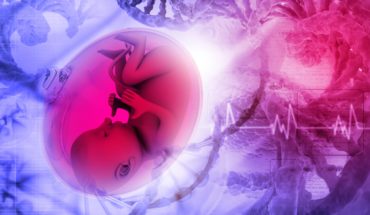Women who give birth to a healthy baby in the UK are routinely offered a routine six-week follow-up appointment. This allows medics to screen for post-natal depression, which can then be treated. It’s a sad fact but your mental health only seems to matter if you have a successful pregnancy.
For women who suffer a miscarriage – the loss of a baby before 24 weeks gestation – or an ectopic pregnancy, there is often no such monitoring. This is despite the fact that one in four pregnancies ends in miscarriage. Around one pregnancy in 90 is ectopic, when the fertilised egg implants in the fallopian tube rather than in the uterus.
Some NHS hospitals may offer support, but most discharge women once they are treated clinically after the diagnosis is made, advising them to return only in the event of pain or excessive bleeding.
Our research, which has just been published in the journal BMJ Open and was funded by the Imperial College Healthcare Charity, suggests that almost 40 per cent of women who suffer a miscarriage or ectopic pregnancy show symptoms of post-traumatic stress disorder in the three-month period following their loss. Yet, the vast majority are not being identified – worrying when we know from PTSD in other groups of sufferers that symptoms do not go away without specialist treatment.
PTSD symptoms, which include nightmares, flashbacks, or intrusive thoughts or images that appear at unwanted moments, can start weeks, months or even years after a traumatic event and can cause sleeping problems, anger, and depression. Once triggered, they can have a profound effect on all aspects of a woman’s everyday life, from her work to her relationships with friends and family.
Previous research has suggested women who experience a stillbirth may develop post-traumatic stress disorder. However this is the first research to only focus on early pregnancy loss.
It doesn’t help that there is an assumption in our society that you don’t tell anyone you are pregnant until after 12 weeks. But this also means that if couples experience a miscarriage in this time, they don’t tell people. This may result in the profound psychological effects of early pregnancy loss being brushed under the carpet, and not openly discussed.
The majority of the 113 women in the study had suffered a miscarriage in the first three months of pregnancy, while around 20 per cent had suffered an ectopic pregnancy, where the baby starts to grow outside of the womb.
Women in the study were sent questionnaires asking them about their thoughts and feelings after their pregnancy loss. All of the women had attended the Early Pregnancy Assessment Unit at Queen Charlotte’s and Chelsea hospital, West London. Nearly a third said their symptoms had impacted on their work life, and around 40 per cent reported their relationships with friends and family had been affected.
We think that screening needs to be offered to all women who suffer miscarriage or pregnancy loss, no matter how early it happened. It is all about setting priorities, but leaving thousands of women to potentially suffer PTSD alone without support is a public health crisis. There may be ways to make it more affordable by giving women the option to take online screening tests, but treatment should always be on offer.
For this reason, we are now looking at what treatments should be offered and why some may be more effective than others. We are also conducting a larger-scale study of 800 women (700 who have lost pregnancies and 100 controls) to check our data and ensure that our results accurately reflect the problem. The study is due to publish its findings by the end of 2017.
We are also aware that more women are trying for babies in later life and the miscarriage rates soar after a woman passes the age of 40. In fact, miscarriage affects one in two pregnancies at age 40, but nine out of 10 pregnancies by the time a woman is 45. This could mean the problem of mental health issues related to miscarriage could actually get even worse in the future, but there is a lot more we need to learn before we can say for sure.
- The PTSD link with miscarriage - 1st November 2016






